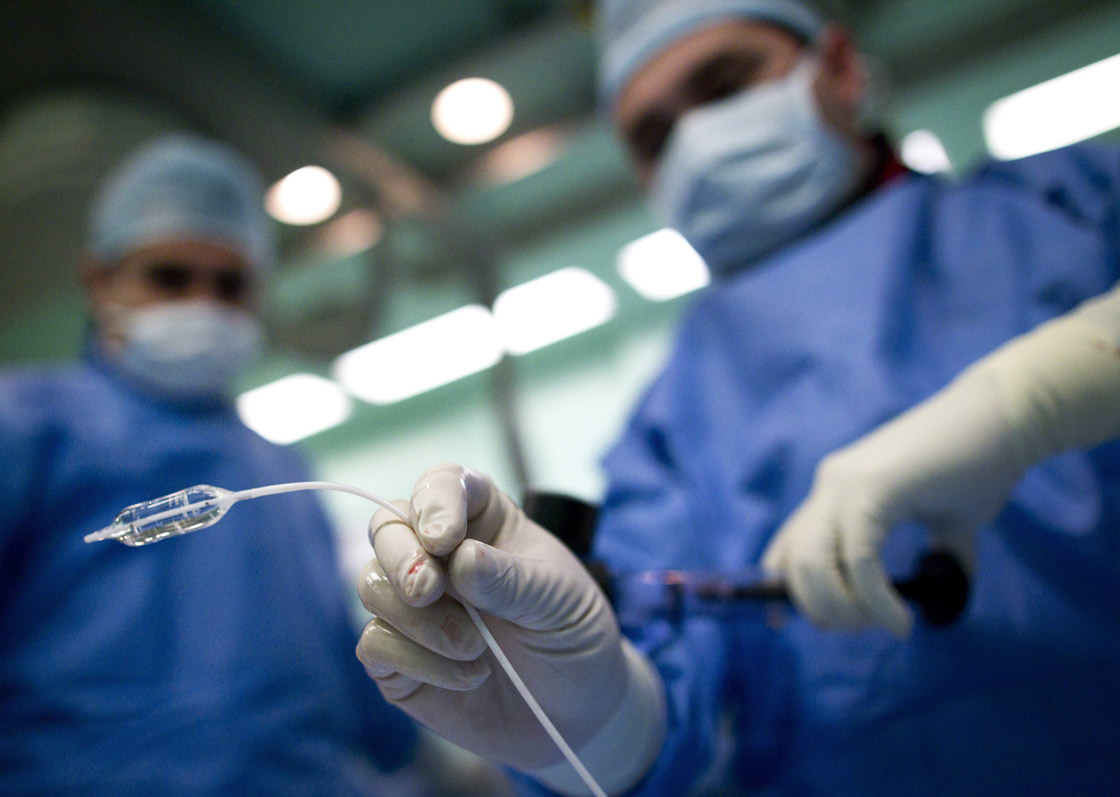An engineering research team from Simon Fraser University is working on a life-and-death puzzle.
Team members know that quickly determining which antibiotic will effectively treat infant diarrhea – a leading cause of child death in the developing world – can save a life and prevent the creation of drug-resistant bacteria.
They also know that existing tests can readily determine the proper antibiotic needed, but require laboratories, transportation and lost time.
Now a group of graduate students working under engineering professor Ash Parameswaran have $100,000 from Grand Challenges Canada to produce a prototype of a hand-held device that could replace time-consuming lab tests and ultimately put affordable technology in the hands of remote health workers.
“If (you) don’t give the antibiotic, definitely the child will die,” Parameswaran said. “If you give the wrong antibiotic you will not cure the disease and you might end up creating a multi-drug-resistant strain.”
The funds will put three of his graduate students to work for a year. The team is among 102 recipients sharing $10.9 million in seed grants from Grand Challenges Canada, funded by the federal government. The grants will help 59 projects in Canada and 43 in low-and middle-income countries around the world, all aimed at improving health.
Parameswaran’s vision for a hand-held device that could produce an antibiogram – a chart showing which antibiotics will kill the bacteria in a given sample – is similar to the progress already seen in blood sugar tests
They used to require a blood sample being sent to a lab, but are now routinely done at home by diabetics who put a drop of blood on a disposable strip, then insert it into a blood glucose monitor.
Members of Parameswaran’s research group previously developed a “lab on a chip” that allows tiny fluid samples to be inserted into sensors for analysis.
In this case, a health worker in the field could transfer a stool sample from a sick child to a small preparation pouch and put a drop on a disposable slide for testing.
And just as there are now blood glucose monitors that attach to an iPhone to immediately transmit results to a doctor or pharmacist, the ultimate aim of the SFU project is to generate corporate interest in developing an antibiogram add-on for smart-phones, based on its research.
“Most of the time the doctor is using a cellphone to communicate with a village. But if there is a diagnostic instrument to go on it, then that really changes the whole world,” said Parameswaran.
While the $100,000 grant for this stage isn’t a lot of money, Parameswaran says most of it will pay the wages of “brilliant students.” Two collaborators from India will also visit SFU in June for six months and then two researchers from SFU will travel to India.
A second Grand Challenge grant is going to a joint effort by Dr. Tabassum Firoz, an obstetric internist trained at the University of B.C., and Tatenda Makanga, a PhD candidate at SFU in the department of geography. Together they are working toward a smartphone application to map the riskiest locations for death during pregnancy and childbirth – and also the places that are making the best of limited resources.

Their initial research will take place here and then in sub-Saharan Africa, likely Mozambique, said Firoz.
“There is no such risk model that integrates environmental or societal risk,” such as access to clean drinking water and roads or complications from war, she said.
For Makanga, the project also has the potential to document efforts that are already working in the developing world, such as communities pooling resources to hire a vehicle for emergency transport.
“Having grown up in Zimbabwe, one of the countries that has a high rate of maternal mortality, I appreciate that there is a pressing need for solutions. But I also appreciate that there are people who are resilient in the face of adverse risks for maternal outcomes. I believe that some communities have adapted to the risk, but it’s not documented anywhere.” Other B.C. recipients are:
University of Victoria chemistry professor Alexandre Brolo, who is developing an inexpensive way to diagnose dengue fever using a plastic strip and portable monitor. Dengue fever is a flu-like mosquito-borne disease that is becoming more common in tropical regions, often leading to hospitalization.
UVic microbiologist Francis Nano and collaborator Dr. Tatyana Hamilton, who are working with Russian scientists to develop a temperature-sensitive strain of tuberculosis that can’t survive at 37 degrees C, the temperature of the human body. The goal is to use this genetically modified tuberculosis bacterium for further research on TB treatments.

Comments